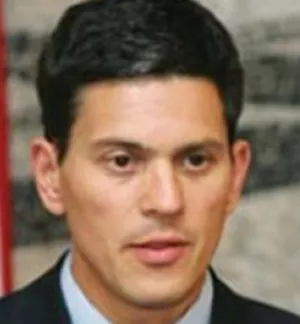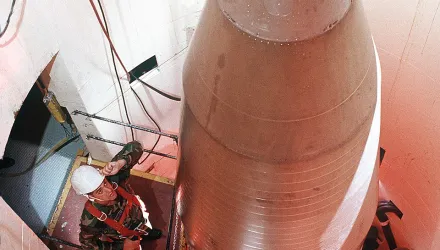The Obama administration and its European allies are confronted by multiple crises in an increasingly turbulent and violent Middle East — the Iran nuclear threat, a strengthening Islamic State and the disintegration of Iraq, Yemen and Libya as functioning nation-states. But no problem is as difficult, grave or pivotal as the brutal, bloody and worsening civil war in Syria.
The situation in this keystone Middle East state is catastrophic. More than 220,000 Syrians have died in its four-year civil war. More than 11 million Syrians — half the population — have fled their homes. Four million have taken refuge in nearby countries. Nearly double that number are displaced within Syria itself. The Islamic State occupies more than a third of Syria’s territory and swathes of Iraq. Given this level of deprivation, mass murder and geopolitical risk in Syria, the response of the rest of the world has been woefully inadequate. The U.N. Security Council has been neither a peacemaker nor a pain reliever.
The extent of great-power diplomacy being brought to bear is the effort of one U.N. special envoy, Staffan de Mistura. While he is a committed and experienced negotiator, he needs much greater political backing from the key nations engaged in the conflict.
Defenders of inaction by the United States and Europe say that putting tens of thousands of U.S. and NATO forces in Syria to respond to the crisis is out of the question. We do not advocate such a course, but that is no excuse for inertia. We believe the United States and others must work fast, at scale and with real drive on the following four initiatives to help Syrians in need.
First, Western countries must meet the U.N. call for 130,000 of the most vulnerable Syrian refugees to be resettled in the West by the end of 2016. The United States has admitted fewer than 1,000 in the first four years of the war. Traditionally, the United States accepts about half of all refugees resettled in other countries. Now, 14 senators have called for the United States to deliver on its historic commitment by admitting 65,000 Syrians by the end of 2016. Germany has offered 30,000 places.
By mobilizing to help, the United States could then call on others, including in the Persian Gulf region, to bear some of the load. No one pretends that this will solve the crisis, but it would be of merciful help to those in greatest need and serve as a symbolic show of solidarity with countries in the front line.
Second, the Western powers should also coalesce with the Arab gulf states, as well as Japan, South Korea and others, to commit to substantially greater economic and humanitarian assistance to the countries bearing the greatest burden of the refugee crisis — notably Jordan and Lebanon, but also Iraq and Turkey. The current U.N. appeal for aid to the Syria region is only 25 percentfunded, and because the affected countries are middle-income, they do not get World Bank assistance.
Third, given the enormity of the humanitarian disaster underway, the United States and Europe should lead an effort to open a renewed humanitarian relief program for the millions of Syrians caught between warring armies. The situation is worse today than when U.N. Security Council Resolution 2139 was passed more than a year ago calling for greater food, shelter and medical assistance. The members of the U.N. Security Council, which has now passed multiple resolutions on Syria, need to stand up for their implementation.
The debate about a no-fly zone across Syria to protect civilians from the Assad government’s deadly “barrel bombs” needs to move from slogans to details. Such zones can offer real protection (as was the case with the Iraqi Kurds in the 1990s), but a decision cannot be divorced from the wider imperative for progress toward a political settlement in Syria.
Fourth, now is the time for the United States and Europe to bite the bullet and engage Russia, Iran and others in a diplomatic initiative to help stabilize a shattered Syria. President Bashar al-Assad’s weakening strategic position poses the very real danger of a Syrian state structure that could unravel even further in the coming months. The current U.N. diplomatic mission requires vastly greater political support and imagination through, for example, a more formalized and empowered high-level Western engagement with Russia, Iran, Turkey and Arab countries to guide a political transition in Syria. Until now, the question of Assad’s future has held the talks hostage. But it is abundantly clear that his misguided strategies have strengthened the Islamic State. Equally, the danger of a vacuum is real. Washington and London have a common interest with Moscow, Tehran and Arab capitals in preserving a functioning Syrian state after Assad falls.
With the Syrian government facing major losses, a transition of power in Damascus, the capital, is not impossible, despite many premature reports of the fall of Assad over the past four years. It is the absence of an agreed vision for power-sharing in Syria that is the largest and most obstinate roadblock to peace. Now is the time to forge that vision.
One thing is clear: While today’s options are bad, they are likely to get worse absent a major shift in the level and nature of international engagement. The ripples of despair will widen; the virus of radicalization will spread.
Both of us are fully aware from our experience in the U.S. and British governments how daunting the Syria challenge is for President Obama, Prime Minister David Cameron and other leaders. But we also know that nothing can be achieved without a fundamental decision in Washington, London and other capitals to provide stronger and more ambitious leadership to help the millions of people engulfed in revolution and war in Syria and the Levant.
Burns, Nicholas and David Miliband. “Syria’s worsening refugee crisis demands action from the West.” The Washington Post, July 10, 2015







